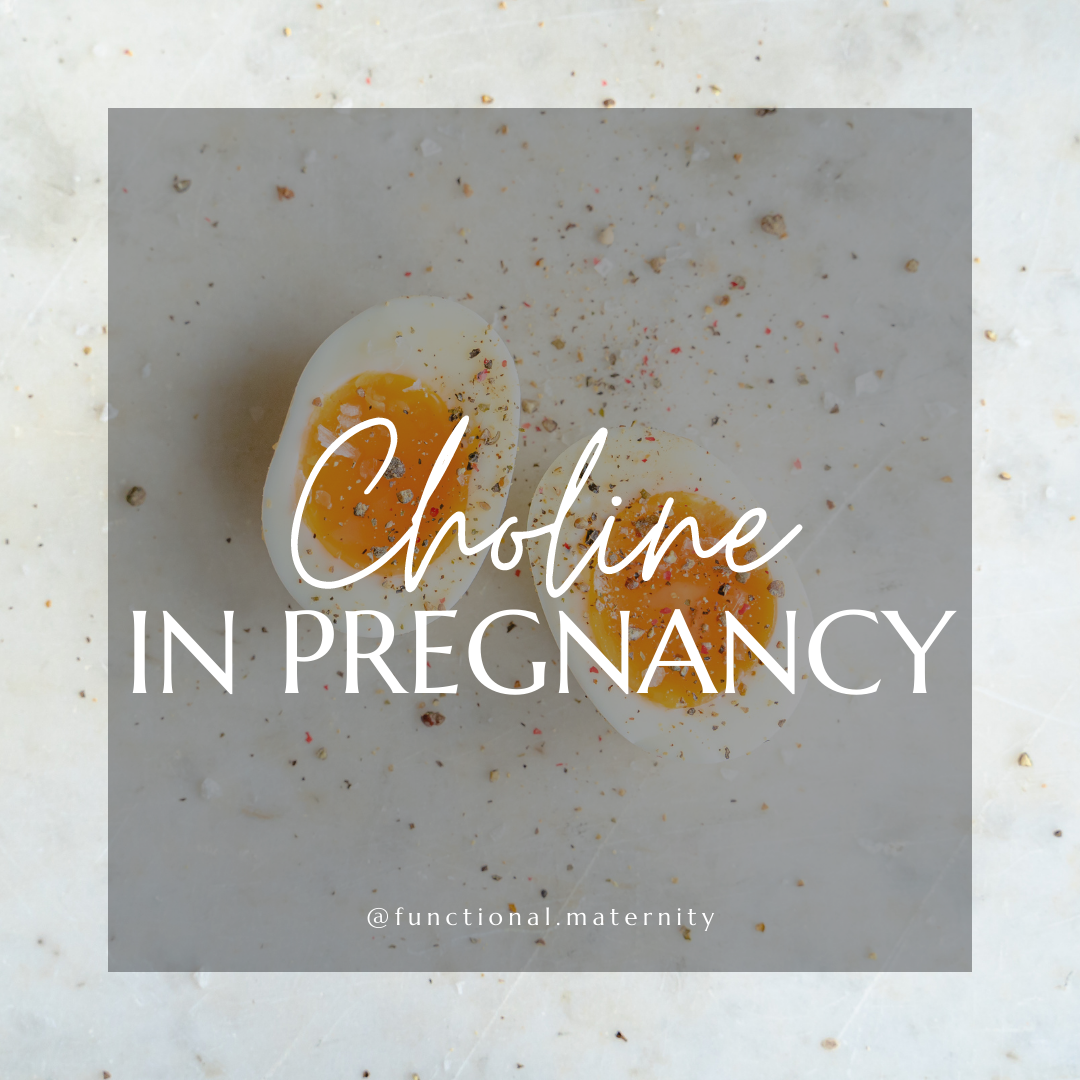A Little Bit About CholineCholine is a dietary nutrient similar in structure to the vitamin B family. Your body can make some choline, but it is not enough to fulfill your needs. The body needs to be supplemented with dietary intake. Choline plays a role in various body functions, including:
There are two different forms of choline found in the diet: a water-soluble form and a fat-soluble form.
How Common is Choline Deficiency?Several factors determine choline demand and risk of deficiency. During pregnancy there is an increased demand for choline, with most of it going to the developing baby. A study from 2017 suggested that only 8.5% of pregnant women were meeting the choline demand in pregnancy, or over 90% of women were deficiency. As of this year, few prenatal vitamins contain choline. There is also concern that the current AI for choline in pregnancy is too low, and that an increased demand during the third trimester warrants a change in the recommendations. Choline in Prenatal VitaminsThe current AI for choline in pregnancy is 450 mg/day. In 2017 the American Medical Association (AMA) announced their support of increasing prenatal supplements to contain the 450mg/day of choline. Sadly, most prenatal supplements, including the top selling brands, do not contain ANY choline. Supplementation is only a safety net and should not account for the full intake of nutrition in pregnancy. Many vitamins and minerals are not absorbed as efficiently in supplemental form and are best consumed in the diet. Taking a prenatal supplement that contains adequate choline and increasing food sources is your best way at increasing functional choline in the body. But, where in the diet do you get Choline? The best sources are Eggs, and Liver! Choline in the DietOne of my favorite foods for pregnancy is eggs. Eggs have nearly everything you need to grow a baby...that's what it does. In regard to choline, eggs give you a whopping 150 mg per egg. Eggs are also high in Vitamin A (needed for oxytocin receptor formation), Vitamin D (deficiencies associated with pregnancy complications), Vitamin E (an essential antioxidant found in the amniotic fluid), as well as protein and cholesterol (needed for estrogen and progesterone formation). In some traditional cultures, pregnant women were required to eat 9+ eggs per day to have healthy babies. I like to have my patients eat 2 per day with quality prenatal and other choline rich foods. Many women are nervous about consuming liver in pregnancy because they have been fed fearful information. Please read my other article on this subject. Consuming liver in the second and third trimesters is safe, and nutrient dense. 3 oz. of Beef contains a whopping 350 mg of choline, not to mention everything you need to build blood - which is doubling in the second trimester. Not everyone likes liver...I know, surprising, right? Sneaking it into food is sometimes easier on the pregnancy palate. Liver can be hidden in broth and ground meats easily. Dietary Choline for Vegetarians and VegansVegans have a harder time accumulating enough dietary choline, as most sources are animal based...but it can be done! I'm not a practitioner that believes everyone should be paleo, all foods have a place in the diet. I am also not a practitioner that is going to try and change someone's philosophy on diet. My job is to make sure that you can maintain a healthy nutritional density with your beliefs. Some of the foods we focus on are:
Copyright © 2021 Functional Maternity, All rights reserved. The content in this article is not intended to be a substitute for professional medical advice, diagnosis, or treatment. Always seek the advice of your physician or other qualified health provider with any questions you may have regarding your medical condition.
0 Comments
Leave a Reply. |
Hi There!I'm Sarah Thompson, a Certified Functional Medicine Practitioner who specializes in Maternal, Prenatal and Childbirth health. I'm also the author of Functional Maternity, and the upcoming book Beyond Results - A practitioner's Handbook to Effective Functional Lab Analysis in Pregnancy. Archives
September 2022
Categories
All
|



 RSS Feed
RSS Feed